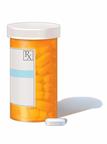Whooping Cough (Pertussis) in Adults: What to Know
Whooping cough, also called pertussis, is an infection that causes very bad coughing attacks. The coughing can last for up to 6 weeks. It may take as long as 6 months for the cough to go away completely.
Whooping cough is contagious. This means it spreads from person to person.
What are the causes?
Whooping cough is caused by germs called bacteria. It spreads when a person:
What increases the risk?
You're more likely to get whooping cough if:
You spend time with a big group of people or in crowded places.
You touch your mouth, eyes, or nose without washing your hands first.
You haven't gotten the shot (vaccine).
What are the signs or symptoms?
At first, you might have symptoms that feel like a cold, such as:
A runny nose.
Low fever.
Mild cough.
Red, watery eyes.
After 1–2 weeks, the cold symptoms may get better, but the cough will get worse. You may have severe and sudden coughing attacks that happen often. You might have a strong coughing fit that can make you throw up.
How is this diagnosed?
Whooping cough may be diagnosed by:
How is this treated?

Whooping cough can be treated with antibiotics. These may:
Help you get better faster and make you less contagious, if started right away.
Be given to everyone in your home to keep them safe from getting whooping cough.
Even after treatment, you might still have a mild cough for a while. This is because your lungs are still healing.
Follow these instructions at home:
Medicines
-
Take your medicines only as told.
-
Take your antibiotics as told. Do not stop taking them even if you start to feel better.
-
Do not take cough medicine unless told.
To help control coughing:
- Raise the head of your bed or use extra pillows. This will:
-
If you have a coughing attack, sit up straight.
-
Use a humidifier to add moisture to the air. This will soothe your cough and help to loosen mucus in your lungs. Do not use steam.
-
Stay away from smoke, strong smells, aerosols, and fumes. These may make your cough worse.
Preventing the spread of infection
-
For the first 5 days of taking antibiotics, stay away from people who might get sick easily.
-
Do not go to school or work until you've taken antibiotics for 5 days. Let your workplace know you have whooping cough.
-
If no antibiotics are given, stay at home for the first 3 weeks that you are coughing or as told by your provider.
-
Everyone in your home should wash their hands often with soap and water for at least 20 seconds. If they can't use soap and water, they should use hand sanitizer.
- People in your home who are at risk should get the vaccine for whooping cough. This includes:
General instructions
-
Rest as much as you can.
-
Ask what things are safe for you to do at home. Ask when you can go back to work or school.
-
Drink more fluids as told.
-
Keep all follow-up visits. Your provider will check how you're doing and see if the treatment is working.
How is this prevented?

-
You can prevent whooping cough with a vaccine and booster shots.
-
The whooping cough vaccine is given during childhood.
-
If you're an adult who never had the vaccine, get it as soon as you can.
-
If you had the vaccine before, talk with your provider about the need for a booster shot.
- These people should consider getting a booster dose:
Contact a health care provider if:
-
You can't stop throwing up or can't eat or drink.
-
Your cough doesn't get better.
-
You have a fever.
-
You are restless or can't sleep.
- You have signs of dehydration, such as:
Dark pee, very little pee, or no pee.
Cracked lips and dry mouth.
Sunken eyes.
Feeling sleepy.
Feeling weak.
-
Your face turns red or blue during a coughing attack.
-
You pass out after a coughing attack, even for a moment.
-
Your breathing stops for a period of time.
-
You feel very tired or you're sleeping too much.
These symptoms may be an emergency. Call 911 right away.
This information is not intended to replace advice given to you by your health care provider. Make sure you discuss any questions you have with your health care provider.
 Whooping cough can be treated with antibiotics. These may:
Whooping cough can be treated with antibiotics. These may: